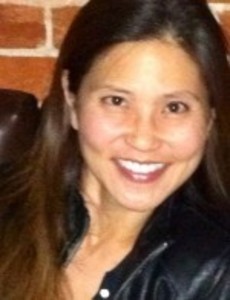We all take medicine, either prescription or over the counter (OTC) from the drugstore, but what do most Americans know about their medication’s journey into their hands? Do we just take a drug because it is what our doctor prescribed or what the commercial ads tell us? Do we know what it means when a drug is FDA approved, much less what the acronym “FDA” stands for?
I asked these same questions on my Facebook. The feedback poured in quickly, and ran the gamut from textbook Wikipedia type responses to heated opinions about perceived politics within the FDA and “greedy” pharmaceutical companies. The passionate debates were subdued and ended with a very personal story of a mother who is on a lifelong prescription regimen post-cancer, and who is thankful that a drug was approved in late 2011 for her young son’s rare, life-threatening genetic disease.
The U.S. Food and Drug Administration (FDA) is a government agency that regulates our country’s foods, dietary supplements, human drugs, vaccines, blood products and other biologics, medical devices, radiation-emitting products, cosmetics, veterinary products and tobacco products. Most are not aware of the agency’s governance is so many areas. Most are also not aware of what is entailed in a drug receiving FDA approval, which can include a process of 1-3 years of research and development, 7 years for clinical studies, additional years spent on the FDA review process and the continued surveillance and tracking of a drug once it has been approved, either as a prescription or OTC with dose or strength of the drug as the key difference between the two.
As human beings we inherently take our own selfish perspective on things. Naturopathic medicine follows a matrix of the healing power of nature (vis medicatrix naturae) that support our own self-healing process. On the opposite end of the spectrum are those such as the mother and her son who rely on what she termed “life-saving drugs” that allow them to function on a daily basis. She is on Synthroid® – a synthetic hormone for thyroxine a hormone made by our thyroid gland – for life due to her cancerous thyroid being removed. Her son has atypical hemolytic uremic syndrome (aHUS) and she is grateful for the September 2011 FDA approval of Soliris® for his condition after unsuccessful frustrating attempts to enroll him in clinical trials because he was deemed “too healthy” to meet the trial criteria. As a mother, she stated that while she does trust the FDA, she did her own research before putting her son on this life-saving drug. To respond to the feedback that pharmaceutical companies are motivated by greed, this mother pointed out that many of the researchers for the company that developed Soliris have family members who are affected by the same types of rare diseases and syndromes, and that is why they work so hard to develop new drugs.
Most agree that avoiding ingesting all things synthetic is the best way to go. If we are genetically healthy and financially lucky, we can be blessed to take that route. Others, however, do not have this luxury and are required to seek life-saving options such as the mother and her son.
Humans are not perfect or invincible, thus anything that man creates or touches is imperfect as well. Remember the Titanic! Anything man-made will have a shelf-life and carry risks and flaws. There is no such thing as 100% perfection. While the FDA does its best to protect us, there is no such thing as a drug that is completely safe for everyone under all conditions. Even aspirin or caffeine, if given randomly to a million people will have negative effects on a few.
In general, FDA approval means that a drug’s benefits have been found to appropriately outweigh its risks, for a given condition, for a given group of people, barring drug interactions or other complicating medical conditions. While the overlying goal is seemingly simple – to help improve the lives of patients needing relief from a particular symptom or disease – the reality is we are a society that is easily steered by advertisers and marketers for the pharmaceutical industry. It is up to us to educate ourselves instead of blindly following what our doctors or commercial ads tell us to do. Seek out the available information on OTC and prescription drugs. Find out what the FDA is all about on their Web site (www.fda.gov). Or better yet, keep reading Hormones Matter because we’ll be covering the FDA approval process.










